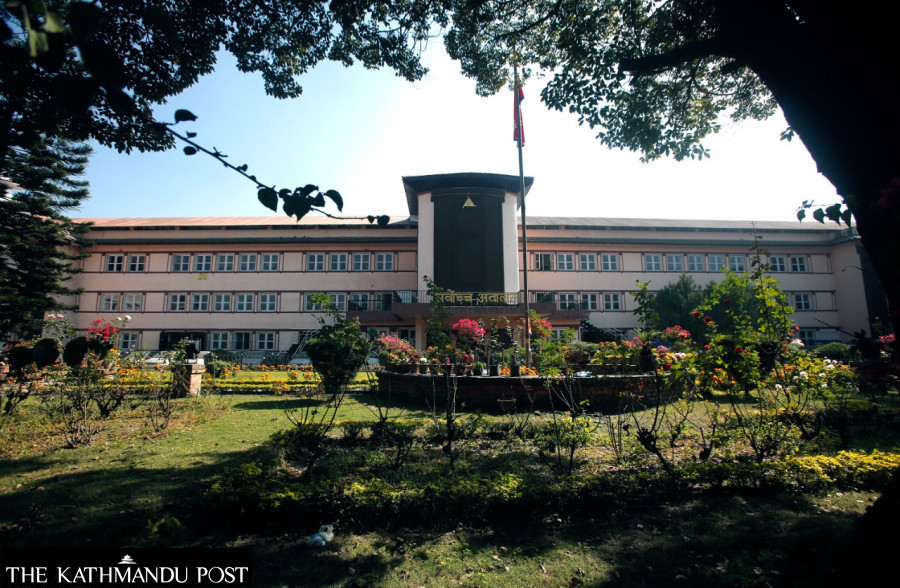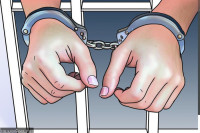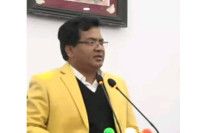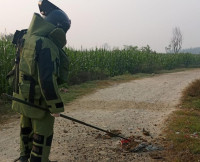National
Supreme Court questions government for listing murder as amnestiable
Government and constitutional bodies asked to clarify 75 percent sentence reduction in revised law.
Post Report
The Supreme Court has directed the government, the parliament secretariat and various government and constitutional bodies to furnish in writing the reasons for listing murder as an amnestiable crime and inducting 75 percent reduction in sentencing in the transitional justice law.
After a preliminary hearing in a writ petition filed by four dozen victims from the insurgency, the Constitutional Bench of the top court issued the ruling to this effect. The Chief Justice Prakash Man Singh Raut-led five-member bench will conduct the final hearing once the concerned agencies furnish their clarifications.
Forty-eight victims at the hands of then-insurgent Maoists on January 6 had moved the top court demanding the scrapping of some of the “controversial” provisions of the Enforced Disappearances Enquiry, Truth and Reconciliation Commission Act amended in August.
“We are happy that the Supreme Court took it as a serious matter and has listed it as a priority petition,” said Shankar Budhathoki, one of the petitioners.
Amid reservations from different quarters, the federal parliament in August amended the Act. It came after long negotiations between the three major parties—the Nepali Congress, the CPN-UML and the CPN (Maoist Centre). The UML, which had always taken a position in line with the victims, changed its stance after taking the helm of the country's executive authority.
While the amended Act has several progressive provisions, it also retains some “controversial” provisions which the victims and some human rights organisations object to.
It lists arbitrary killing as a serious violation of human rights, thus non-amnestaible. The rest of the killings, however, fall under human rights violations which are amnestiable but at the victim's consent.
“Murder itself is a serious violation. It cannot be unserious,” claims the petition. The petitioners also have challenged the provision of reducing the sentencing by 75 percent at the time of filing the cases in the serious violations of human rights except in rape and sexual violence. They have said allowing the Attorney General’s Office to file cases seeking just 25 percent of the existing penalty is targeted at protecting the perpetrators.
Most of the victims had said they would have critical support to the Act, demanding competent teams in the Truth and Reconciliation Commission and the Commission of Investigation on Enforced Disappeared Persons. Though the government formed a five-member recommendation panel to select the office-bearers in the two commissions, it failed to accomplish the task in the given time frame.
A section of the victims led by Chiranjivi Basa Giri moved the court amid an uncertainty over the picking of office-bearers. Former Maoist child soldiers have also lodged a separate petition claiming their issue has not been addressed in the transitional justice process.
In 2014, a group of victims had lodged a petition challenging several provisions of the Act. After multiple hearings, the top court in February next year scrapped dozens of perpetrator-friendly provisions and directed the government to amend the Act. However, it took another eight years for the Act to be amended though it still has reservations from the victims and human rights communities.




 13.56°C Kathmandu
13.56°C Kathmandu














